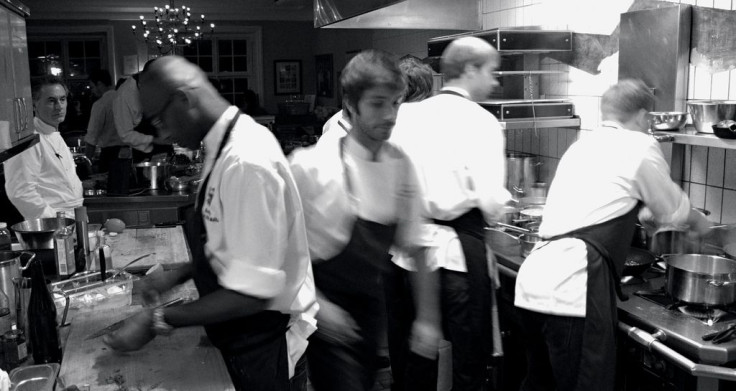Calling Out Of Work Isn't An Option For 51% Of Sick Food Workers

As the winter months draw near, most people fear getting sick, as it would mean taking a day off from work. Unfortunately, many Americans are simply unable to do that, especially those who work in the food industry. In a survey released on Monday, 51 percent of food workers — those who grow, handle, prepare, and serve our food — said that they always or frequently go to work when they’re feeling under the weather.
The survey, conducted by Alchemy Systems — a firm that works with companies across the food chain to improve safety and productivity — found that on top of the 51 percent who always came in ill and handled food, 38 percent only sometimes came in sick.
Though it might seem questionable how prudent these food workers were with regard to how they affect or infect the people they serve, the survey showed that 9 out of 10 workers actually felt responsible for the safety and wellbeing of their customers. The reason they felt they had to go to work: They simply couldn’t afford to lose the pay. Jose Oliva, co-director of the Food Chain Workers Alliance, told NPR, "A lot of these workers actually depend on every single one of the days that they work for money. So if you don't go to work, you don't get paid." Forty-six percent also stated that they went in sick because they didn’t want to let their co-workers down.
To get more information for their survey, Alchemy asked the Center for Research and Public Policy, a consulting firm, to gather data from more than 1,200 food workers in both the U.S. and Canada this past July. Alchemy CEO Jeff Eastman told The Salt that the reason for the survey was so his company could gain more insight into the lives of food workers.
A separate survey conducted in 2012 found that 79 percent of food workers didn’t have paid sick days, or were unaware they did have them. That same survey found a similar number of workers (53 percent) went to work sick. Oliva points to the fact that food workers are some of the lowest paid in the U.S. He argues that if these workers were given a livable wage, they’d be more apt to taking unpaid sick days.
Despite the overall ickiness of sick workers serving food, 87 percent of those workers said they would serve their families the same food.
Published by Medicaldaily.com



























